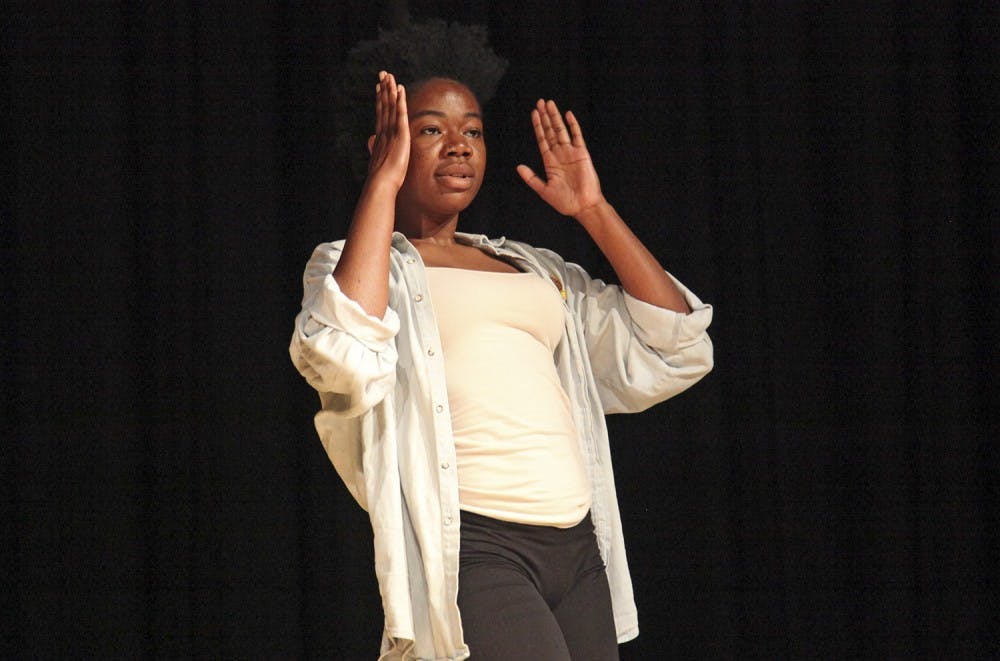Sponsored by the Carolina Women’s Center, the first half of the program consisted of a series of videos and performances, including clips of speeches by Malcolm X, a performance by the a capella group Harmonyx, dance performances and spoken word poetry.
Many of the pieces engaged with the topic of colorism, the way that racism applies in different ways to people of color with varying skin tones.
One spoken word poem was a group piece, “The Average Black Girl,” that chronicled the various prejudices and expectations black girls face in American society.
First-year Reana Johnson, one of the piece’s performers, said she believes addressing colorism is important and that colorism is a heavily divisive factor in black communities.
“I think this is important because it’s usually not addressed, this divide within our group is not addressed as divisive as it is,” Johnson said. “It reinforces white privilege, white racial superiority and it’s not addressed, so for the community to realize that this white privilege still exists whether you’re a little bit higher with privilege than the other black person, I think it’s really important for that to happen.”
After the performances, Liburd moderated a discussion panel. She said she has been involved in the Body Politics program for four years and has had her own experiences with colorism.
“In ninth grade, I had a boyfriend that said I was pretty for a darked skin girl. I don’t think it necessarily impacted the way I felt about myself, but I just thought it was interesting because I had never heard that before that point,” Liburd said. “Then you know, of course I ran into other girls that had been hearing that same thing.”
The panel, which featured North Carolina Central University professor Yaba Blay and UNC sociology postdoctoral fellow Taylor Hargrove, tackled topics in relation to colorism, including the dynamics of house and field slaves, beauty standards and discrimination within communities of color.



